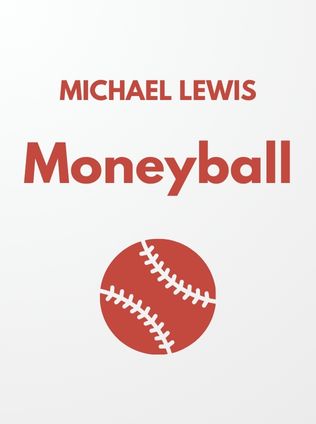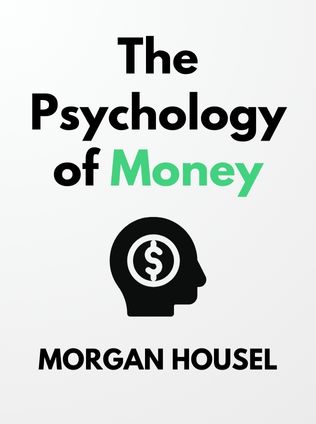
About the Author
Michael Lewis, born in 1960 in New Orleans, Louisiana, is a journalist and bestselling author renowned for his ability to transform complex, often arcane subjects into captivating narratives. After graduating from Princeton University with a degree in art history, Lewis went on to earn a master's degree in economics from the London School of Economics. His education and early career in finance, notably his experience on Wall Street, deeply influenced his writing, beginning with his first bestseller, "Liar's Poker", a semi-autobiographical account of his experiences in the bond trading world.
Lewis's works often delve into the undercurrents of various industries, uncovering the stories and characters that define them. He has a unique talent for identifying the pivotal moments where industries and systems transform, and he presents these shifts through the lens of individual stories, making them relatable and engaging. In "Moneyball: The Art of Winning an Unfair Game", Lewis applies this approach to the world of baseball, exploring how data-driven decision-making challenged and ultimately redefined the conventional wisdom of the sport.
Lewis's work is characterized by thorough research, insightful analysis, and a storytelling style that makes even the most intricate subjects accessible to a broad audience. His books, including "The Big Short", "The Blind Side", and "Flash Boys", have consistently topped bestseller lists and have been adapted into successful films, further cementing his reputation as one of the most influential non-fiction writers of our time.
Main Idea
At its core, Moneyball is a story about challenging the status quo and finding value where others see none. The book chronicles the 2002 season of the Oakland Athletics, a Major League Baseball (MLB) team that achieved remarkable success despite having one of the smallest budgets in the league. Under the leadership of General Manager Billy Beane, the A's adopted a revolutionary approach to building their roster, relying on sabermetrics—a form of statistical analysis—to identify undervalued players who could contribute to the team's success.
This approach flew in the face of baseball's traditional scouting methods, which often relied on subjective assessments of a player's physical attributes and intangibles. Beane and his team, including assistant GM Paul DePodesta, focused on objective data, particularly on-base percentage (OBP), which they believed was a better predictor of offensive success than more traditional metrics like batting average. The result was a team that, despite lacking the star power and financial resources of its competitors, managed to win 102 games during the regular season and set a then-American League record with a 20-game winning streak.
Moneyball is not just a baseball story; it is a tale of innovation, resilience, and the power of data to disrupt entrenched systems. It challenges readers to question conventional wisdom and to consider how a different perspective—rooted in evidence and analysis—can lead to extraordinary results.
Table of Contents
- A Failed Playing Career
- Undervalued Vs. Overvalued Metrics
- Underpriced Talent Through the Draft
- A Value-Driven Philosophy
- Assembling the Pieces
- The Trade Deadline
- Rethinking Pitching
- Final Results
A Failed Playing Career
The story of Billy Beane is central to understanding the revolution that Moneyball describes. Beane's career began with immense promise—an extraordinarily talented high school baseball player, he was seen as a sure thing by scouts and experts alike. Drafted in the first round by the New York Mets in 1980, Beane was expected to rise quickly through the ranks of professional baseball. However, despite his natural athleticism and competitive spirit, Beane's playing career was marred by inconsistency and an inability to handle failure, leading to a series of trades between teams and, eventually, an early retirement.
This failure on the field deeply influenced Beane's later career as a general manager. Having been a victim of the traditional scouting methods that emphasized physical attributes and potential over actual performance, Beane became skeptical of the conventional wisdom that dominated baseball. As he transitioned into a scouting role and eventually into the front office, Beane vowed to never repeat the mistakes that had derailed his own career. He recognized that the subjective evaluations that had failed him as a player were just as flawed when applied to others.
"I made one great decision in my life, based on my ability as opposed to my experience, and I nearly killed myself." – Billy Beane
This quote encapsulates Beane's shift from relying on potential to focusing on performance. His experience taught him the dangers of overvaluing raw talent and underestimating the psychological and emotional aspects of the game. This realization became the foundation of the Oakland A's strategy under his leadership.
Lessons from Failure
Beane's career as a player was defined by unmet expectations, but it also provided him with invaluable insights that would later fuel his success as a general manager. The pressure to live up to his potential exposed the flaws in traditional scouting and development processes, which often placed too much emphasis on physical attributes while ignoring other critical factors such as mental resilience and actual performance.
how Beane's failures informed his later strategies include:
Sign up for FREE and get access to 1,400+ books summaries.
You May Also Like
Rich Dad Poor Dad
What the Rich Teach Their Kids About Money - That the Poor and Middle Class Do Not!
By Robert T. KiyosakiFreakonomics
A Rogue Economist Explores the Hidden Side of Everything
By Steven D. Levitt and Stephen J. DubnerThe Lean Startup
How Today's Entrepreneurs Use Continuous Innovation to Create Radically Successful Businesses
By Eric RiesWho Moved My Cheese?
An Amazing Way to Deal with Change in Your Work and in Your Life
By Spencer Johnson, M.D.Factfulness
Ten Reasons We're Wrong About the World – and Why Things Are Better Than You Think
By Hans RoslingMake Your Bed
Little Things That Can Change Your Life...And Maybe the World
By William H. McRaven



















